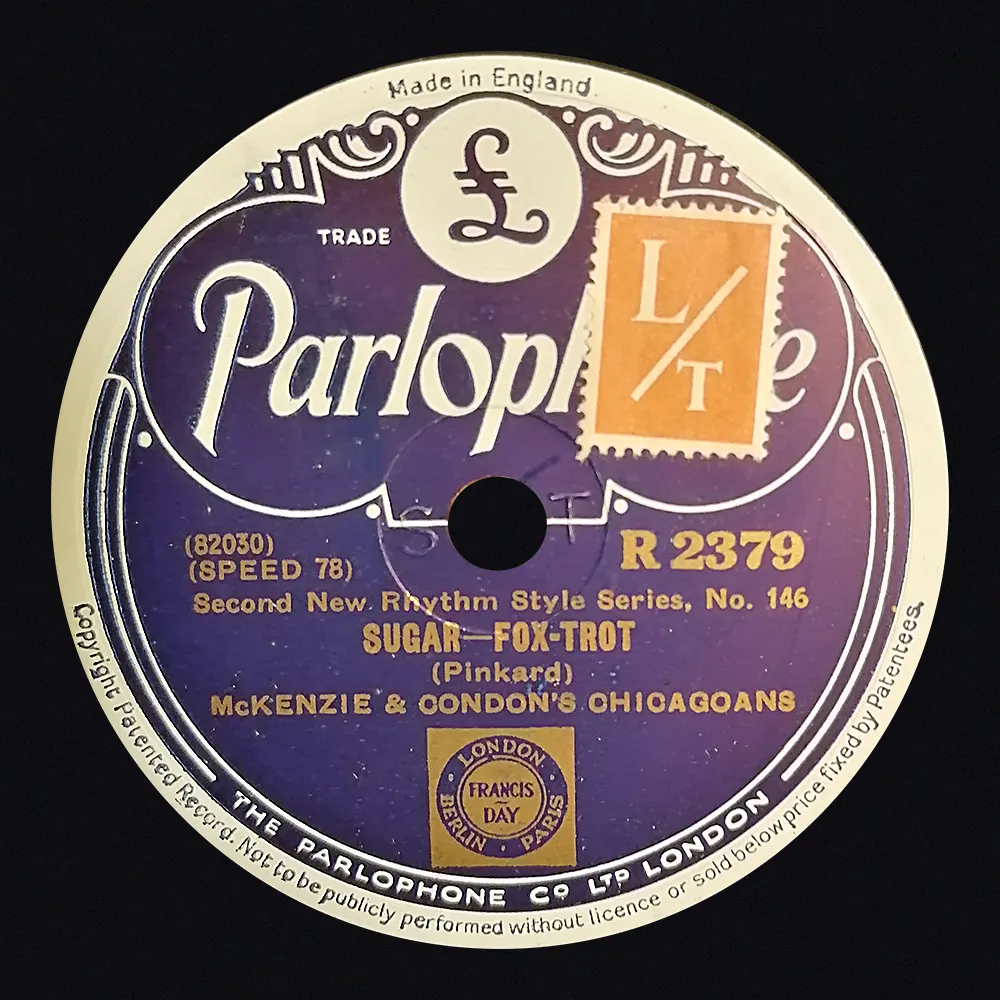Sugar
78rpm Parlophone 2379

In Eddie Condon’s book We Called It music (1947), it’s said, not by him but by his co-author Thomas Sugrue: “The white musicians that went to the Lincoln Gardens, the Sunset Café or the Nest knew that however long they tried they would never more than imitate what they heard. But they felt the sting of an art form which transformed interpreters into composers, made creators from copyists.”
It sounds reasonable to me, and I think that it is confirmed by their recording debut in 1927. They do not come out here very skilled, but they have the right ideas about what to do.
The ensemble after the intro, when they play the chorus and the verse, is arranged but still partly improvised thanks to the cornet lead from Jimmy MacPartland and the clarinet playing of Frank Teschmaker. Then, when MacPartland plays his solo, he doesn’t take any risks but stays in the middle register, not too far from the melody, and he has a good, if not very varied, rhythm. Also in the clarinet solo that follows, Teschmaker takes the song’s melody as a starting point. Both players take good advantage of the blue notes.
In the last chorus, Bud Freeman, a bit timidly takes eight bars on tenor sax, and then in the beginning of the last eight, Jimmy MacPartland shows inspiration from Bix Beiderbecke when he takes a long high note to lead the ensemble to a climatic ending. The idea of this comes from New Orleans trumpet players like Freddie Keppard, King Oliver and Louis Armstrong, but the way he does it reminds me more of Bix.
Eddie Condon on banjo and Jim Lannigan on slap bass give effective rhythm support, while Gene Krupa this time is forced to be discreet by the recording engineer. Still, the last sound comes from his cymbal. Joe Sullivan is at the piano.
Red McKenzie was the one who suggested the session to Tommy Rockwell of Okeh Records, and after a short discussion, he and Condon decided on a compromise regarding the name of the band, “McKenzie-Condon Chicagoans.”